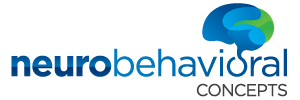At NeuroBehavioral Concepts we pride ourselves in making accurate diagnosis or consulting with our colleagues when that diagnosis requires neurocognitive or neuropsychological evaluations. According to HealthCentral expert Eileen Bailey, getting an accurate ADD/ADHD diagnosis can be difficult at any time, but the fact that the disorder shares symptoms with other health conditions can make it even harder. In no particular order, here are the most common misdiagnoses:
- Autism, Pervasive Developmental Disorder and Asperger’s: People with autism can seem to lack the ability to create emotional bonds and can struggle with interactions with others. Children with autism are often over-excited when in high stimulus environments, which can mimic hyperactivity. Both children with ADHD and children with autism can have a hard time adjusting to change.
- Hearing Impairments: People that suffer from hearing impairments can experience problems in social situations and may have underdeveloped communication. They may have a hard time paying attention because of their inability to hear properly. Undiagnosed hearing loss can appear as missing details of conversations, not listening or not paying attention. These symptoms are also common in individuals with ADHD.
- Hyperthyroidism: Hypothyroidism can create feelings of sadnes or depression. People with ADHD can also suffer from these feelings, especially if depression is a co-existing condition.
Hypothyroidism also includes symptoms of inability to concentrate and memory problems. ADHD also includes the symptom inability to concentrate, and forgetfulness can be mistaken for memory loss. - Iron Deficiency Anemia: Iron Deficiency in adults causes lethargy, feeling exhausted and irritability. In infants and children, however, the symptoms include irritability, inability to concentrate, impaired cognitive skills and a short attention span. Children with ADHD also show symptoms of inability to concentrate and are distracted easily, mimicking a short attention span.
- Lead Toxicity: Lead poisoning, even at low levels, can create a number of problems. Some complications of lead toxicity include mental retardation, decreased school performance, short-term memory problems, inability to concentrate and decreased cognitive function. Many of these symptoms are also seen in children with ADHD.
- Mental Retardation:Mental retardation can appear as emotional immaturity. Some symptoms include limited social skills, school performance issues and needing extra time to learn. Symptoms of mild mental retardation include forgetfulness and the inability to connect consequences with actions.
- Nutritional Deficiencies/ Food Allergies: Hypoglycemia, also called low blood sugar, can cause a number of symptoms similar to ADHD including aggression, hyperactivity, inability to sit still or low concentration levels. In addition, some people also have an adverse reaction to chemicals in food, such as, MSG, red dye, corn syrup or additional additives. These reactions can include anger, agitation, impulsiveness, hyperactivity and lack of concentration.
- Seizure Disorders: Some children with mild seizures can experience “absence seizures” lasting only a few seconds. Sometimes these seizures are not even noticeable. After a seizure there can be a period of several hours where someone feels disoriented and confused, causing difficulty following directions or being attentive.
- Sensory Disorders: For children with sensory disorder, over-stimulation can create symptoms similar to ADHD. They may take risks without understanding the danger, quickly jump from activity to activity, be accident-prone or have difficulty paying attention.
- Sleep Disorders: Although people with ADHD notoriously have difficulty sleeping, they may or may not have a sleep disorder. The inability to get a good night’s sleep interferes with many daytime activities. People that lack sleep can have a hard time concentrating, communicating, following directions, and may suffer decreased short-term memory. People with ADHD may experience many of these symptoms, unrelated to getting a good night’s sleep.








